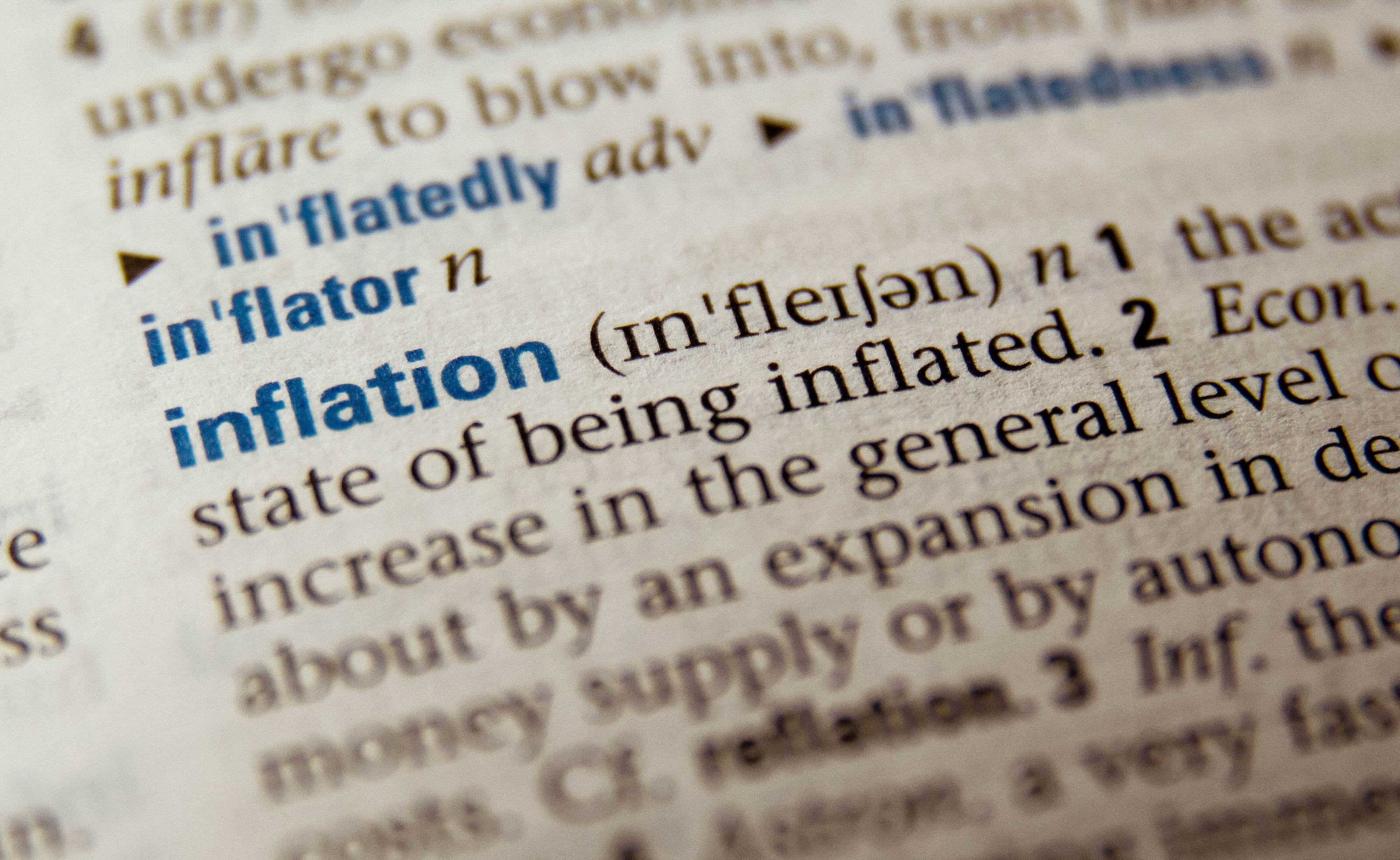Retirees, Here's What to Consider When Buying an Annuity
Annuities are sometimes touted as a solution for retirees concerned about outliving their savings. But these products can be complicated.


Profit and prosper with the best of Kiplinger's advice on investing, taxes, retirement, personal finance and much more. Delivered daily. Enter your email in the box and click Sign Me Up.
You are now subscribed
Your newsletter sign-up was successful
Want to add more newsletters?

Delivered daily
Kiplinger Today
Profit and prosper with the best of Kiplinger's advice on investing, taxes, retirement, personal finance and much more delivered daily. Smart money moves start here.

Sent five days a week
Kiplinger A Step Ahead
Get practical help to make better financial decisions in your everyday life, from spending to savings on top deals.

Delivered daily
Kiplinger Closing Bell
Get today's biggest financial and investing headlines delivered to your inbox every day the U.S. stock market is open.

Sent twice a week
Kiplinger Adviser Intel
Financial pros across the country share best practices and fresh tactics to preserve and grow your wealth.

Delivered weekly
Kiplinger Tax Tips
Trim your federal and state tax bills with practical tax-planning and tax-cutting strategies.

Sent twice a week
Kiplinger Retirement Tips
Your twice-a-week guide to planning and enjoying a financially secure and richly rewarding retirement

Sent bimonthly.
Kiplinger Adviser Angle
Insights for advisers, wealth managers and other financial professionals.

Sent twice a week
Kiplinger Investing Weekly
Your twice-a-week roundup of promising stocks, funds, companies and industries you should consider, ones you should avoid, and why.

Sent weekly for six weeks
Kiplinger Invest for Retirement
Your step-by-step six-part series on how to invest for retirement, from devising a successful strategy to exactly which investments to choose.
Saving for retirement is daunting enough without inflation throwing retirees a curve ball. Inflation soared in 2021, rising 6.8% year-over-year in November, the highest since 1982, according to government data. "When prices are going up, there's less margin for error," says Wade Pfau, a professor of retirement income at The American College of Financial Services. "Where you might have had surplus in your budget before, now there isn't that room to absorb a less-than-ideal investment."
Annuities are often pegged as the ideal solution for someone worried about outliving savings, but even they can come up short. Retirees turn to annuities for an immediate or future stream of guaranteed income in exchange for a lump sum or periodic payments to an insurer. The money invested in an annuity grows tax-deferred, but the payments you receive are taxed as ordinary income.
Just because an income is guaranteed doesn't mean it's inflation proof. "The value of an annuity's income can still be eroded, and inflation protection through the annuity, which you pay more for, isn't always the best solution," Pfau says. Plus, fees, returns and other conditions vary widely depending on the company and the type of annuity. To sort through the sales pitches, you'll need to understand how to evaluate these products and pair them with annuity strategies to keep your retirement income ahead of rising prices.

Risk Versus Return
Annuities can be set up in various ways. You can collect payments for a set number of years or request guaranteed payments to last the rest of your life. You can also choose when you want to start receiving income. Immediate annuities pay you right away, typically within a month of purchase. A deferred annuity delays those income payments to some future date, giving your savings more time to grow. The longer you wait to collect payments, the higher that monthly income will be.
Another distinction is how the annuity invests your money. "A fixed annuity is a very simple version which works like a CD alternative. For example, a contract might pay a 2% return guaranteed for three years," says David Hanzlik, vice president of annuity and retirement solutions at CUNA Mutual Group in Madison, Wis. After the initial guaranteed period, the contract pays a return based on market interest rates. Fixed annuities are the safest option because you can see exactly how much your money will grow and the amount of income you'll receive. Fixed annuities also have the fewest fees. Their potential returns, however, are lower compared with other types of annuities, making them more vulnerable to inflation.
Variable annuities invest in market-based accounts, like mutual funds, with the savings growth dependent on these underlying investments. If the investments perform well, your income is higher, and if the performance is poor, your income is reduced. If returns are terrible, you could even lose part of your contributions, although some annuity companies will guarantee a base level of monthly income, even if your account runs out of money.
Fixed index annuities are in the middle in terms of risk and return. Their performance is also tied to a market-based fund, like the S&P 500, but there is a cap and a floor for gains and losses. A typical fixed index annuity caps your gains between 4% and 7% a year, depending on the contract terms, even if the underlying investments gained far more. You forfeit those higher gains in exchange for not losing money in a bad year. "The floor is the selling point. It gives you the opportunity to participate in the market, without the risk of losing money," says Neel Shah, an estate-planning attorney and a certified financial planner at Shah Total Planning in Monroe Township, N.J.
The type of annuity you choose or even whether you buy one at all boils down to how important a steady, guaranteed income is to you. "For example, someone who wants more stable guarantees would focus on a fixed annuity, whereas those who want upside potential may be better with a fixed index or variable annuity," says Hanzlik. Retirees who already have their income needs covered by other guaranteed sources, like Social Security and a pension, don't need an annuity.
Because annuities give you more income later in retirement in exchange for having less at the start, they're not a good fit for someone who wants the reverse. "If you plan on spending more to maximize your lifestyle at the start of retirement and aren't as worried about outliving your savings, an annuity might not make sense," says Pfau.

Comparison Shopping
If you can tolerate risk, you may be better off investing on your own because annuity fees take a bite out of returns. When shopping for an annuity, you'll need to evaluate contracts based on three categories.
First, the contract's return. Is the return guaranteed at all, and how much per month does it pay in income?
Second, the fees. Annuities charge an upfront commission as well as annual fees such as those for administration, mortality expenses (to cover lifetime income guarantees and policy death benefits) and investment expense ratios. "Variable annuities typically have high expense ratios that hover around 1.5% to 2.5% a year," says Shah. Expense ratios are lower for index annuities and nonexistent for fixed annuities, which aren't tied to a market-based investment. There may be additional fees for optional features, such as a death benefit that pays an income to a surviving spouse or a rider that covers some long-term care costs. These extra features also reduce the monthly payout. Take the time to understand what you're getting and what it costs. "For every client I speak to who understands their annuity fees, I meet 24 who do not," Shah says.
Third, how much access do you have to your deposit? Annuities usually have a surrender charge if you take money out during the first few years, starting at about 7% of the withdrawn amount and gradually decreasing over time. Some contracts may give you some penalty-free early access, such as letting you withdraw up to 10% of your deposit without having to pay the surrender charge.
Pfau describes the three categories as levers working together behind a contract design. "When you raise one up, another usually goes down in terms of quality," he says. For example, a contract with a higher guaranteed return likely has a more expensive surrender charge to give the annuity company time to invest your funds in higher-earning, long-term assets. You'll need to decide which combination works for you. "Someone who wants a long-term investment might be fine with a large surrender charge," Pfau says. In that case, "it would be better to get an annuity with a better guaranteed return and lower annual fees instead."
Because they are simpler products that pay a set interest rate, fixed annuities are easier to evaluate. Calculators on annuity company websites estimate how much income you can expect from a deposit on a fixed annuity contract. Online comparison websites, like BlueprintIncome.com and ImmediateAnnuities.com, let you compare quotes from different companies. For example, according to recent numbers from Immediate Annuities, a 70-year-old man in New York who buys a fixed income annuity for $100,000 would get $574 in income per month.
Comparing and evaluating fixed index and variable annuities is more difficult because the fees are more complex and the returns are harder to understand. Those returns are based on hard-to-predict market investments, so you also need to determine how the income guarantees work. For instance, will you still get some income if your contract runs out of money?
Variable annuities, in particular, are so complex that companies are not supposed to let customers review the contracts on their own. To compare these products, you must meet with a financial professional who sells them, including representatives from the annuity companies themselves. A financial adviser who represents multiple companies can give you a broader comparison than an agent promoting only one line of products.
Whomever you meet with, be sure to ask how the person advising you is getting paid. "Everyone has a bias toward how they want clients to buy products," says Shah, who also recommends finding out what standard the adviser follows for recommending products. "If they only follow a suitability standard, they could potentially recommend an annuity that earns them a higher commission, even if there's a better option available for you. An adviser following a fiduciary standard legally must put your interests first and recommend the best fit for your plan."
Be skeptical if a product doesn't sound right for you. Annuities should address a specific financial goal, says Dan Keady, a certified financial planner and chief financial strategist at TIAA. So "ask 'Why is this specific annuity being promoted to me?' Especially if it's a more complicated annuity like variable or fixed index."
To get around these biases, consumers are turning more to fee-only annuities that are managed by investment advisers who typically work as fiduciaries. The advisers aren't insurance agents and don't earn a commission for selling products. Instead, they earn an asset under management fee for overseeing your investments, about 1% a year depending on the portfolio size. Fee-only annuities also tend to have a less expensive surrender charge because annuity companies use this fee to make up for paying agent commissions.
You could also ask your 401(k) administrator if the plan offers annuities. "The plan administrator wouldn't earn a commission, so that can avoid bias," Keady says, and "you may qualify for a better offer thanks to group pricing, rather than buying on your own."

Inflation Strategies
With rising inflation and rock-bottom interest rates, now might seem like a poor time to buy an annuity, especially one locking in lifetime payments based on a fixed interest rate. But if you need income now, there are also drawbacks to waiting, Keady says.
For one thing, an annuity's return is not just based on interest rates. The contract also pays out based on a system called mortality credits. "The insurance company pools your money with all the other contract holders receiving lifetime income. As people pass away, part of their deposit goes to paying the surviving contract holders, so they earn more," says Keady. The earlier you buy your contract, the more mortality credits you build for future income, which could compensate you for a lower interest rate.
Another advantage to buying instead of waiting is that an annuity currently pays more than other fixed-income investments like bonds and CDs. The typical three-year CD pays less than 1% and so does a three-year Treasury note. The typical guaranteed return for a three-year fixed annuity is about 2%. Although you can find bonds that pay higher yields, those returns are not guaranteed, and there's a chance of losing money.
If you don't need the income now, you could set up a fixed annuity for about three years to earn a higher return compared to other fixed-income investments and then reinvest the proceeds later if rates are higher. Because annuity earnings are tax-deferred, you also won't owe income tax each year the way you do for bond interest, Shah says.
To make sure that rising prices don't cut into your income, you could also split your annuity deposit across multiple contracts, with some money in a fixed annuity for predictable income and the rest in a variable or fixed index annuity for a higher growth potential from investment markets to offset inflation. "This is similar to diversifying your portfolio into both stock and bonds to balance upside and downside outcomes," says Keady.
Another option is to buy a cost-of-living adjustment rider, or an inflation protection benefit, for the contract. With this feature, you get smaller payments from the annuity initially, compared with a fixed annuity that has no COLA rider, but the amount increases each year. For example, a fixed annuity paying $1,000 a month might start out paying about $600 monthly with a 5% COLA rider, but every year for the rest of your life the payments go up by 5%. Although this can help your retirement income grow with inflation, Pfau warns that it takes considerable time to break even than if you had bought an annuity with no rider. "I ran a study which found the breakeven point for a retiree using a COLA rider requires receiving payments until as late as their 90s," says Pfau.
As an alternative to a COLA rider, you could ladder your annuities. A laddering strategy lets you time your purchases instead of locking into one long-term contract when rates are low and inflation is rising. In addition, you benefit from the higher payouts that come with buying an annuity at an older age. For example, according to ImmediateAnnuities.com, a 65-year-old man with $200,000 to invest in an annuity, could buy one for $100,000 to generate $493 now in monthly, lifelong income. At age 70, he can buy a second annuity for $50,000, giving him another $287 a month based on today's rates. Adding a third annuity at age 75 for $50,000 boosts his monthly income by $348, assuming interest rates and life expectancies don't change.
No annuity strategy, however, can keep pace with inflation quite like investing directly in the market. That's why Pfau recommends putting no more than 20% to 40% of your retirement savings into annuities. The rest of your portfolio should remain in market assets for inflation protection and easier access to the money.
Profit and prosper with the best of Kiplinger's advice on investing, taxes, retirement, personal finance and much more. Delivered daily. Enter your email in the box and click Sign Me Up.

David is a financial freelance writer based out of Delaware. He specializes in making investing, insurance and retirement planning understandable. He has been published in Kiplinger, Forbes and U.S. News, and also writes for clients like American Express, LendingTree and Prudential. He is currently Treasurer for the Financial Writers Society.
Before becoming a writer, David was an insurance salesman and registered representative for New York Life. During that time, he passed both the Series 6 and CFP exams. David graduated from McGill University with degrees in Economics and Finance where he was also captain of the varsity tennis team.
-
 Quiz: Do You Know How to Avoid the "Medigap Trap?"
Quiz: Do You Know How to Avoid the "Medigap Trap?"Quiz Test your basic knowledge of the "Medigap Trap" in our quick quiz.
-
 5 Top Tax-Efficient Mutual Funds for Smarter Investing
5 Top Tax-Efficient Mutual Funds for Smarter InvestingMutual funds are many things, but "tax-friendly" usually isn't one of them. These are the exceptions.
-
 AI Sparks Existential Crisis for Software Stocks
AI Sparks Existential Crisis for Software StocksThe Kiplinger Letter Fears that SaaS subscription software could be rendered obsolete by artificial intelligence make investors jittery.
-
 457 Plan Contribution Limits for 2026
457 Plan Contribution Limits for 2026Retirement plans There are higher 457 plan contribution limits in 2026. That's good news for state and local government employees.
-
 Medicare Basics: 12 Things You Need to Know
Medicare Basics: 12 Things You Need to KnowMedicare There's Medicare Part A, Part B, Part D, Medigap plans, Medicare Advantage plans and so on. We sort out the confusion about signing up for Medicare — and much more.
-
 The Seven Worst Assets to Leave Your Kids or Grandkids
The Seven Worst Assets to Leave Your Kids or Grandkidsinheritance Leaving these assets to your loved ones may be more trouble than it’s worth. Here's how to avoid adding to their grief after you're gone.
-
 SEP IRA Contribution Limits for 2026
SEP IRA Contribution Limits for 2026SEP IRA A good option for small business owners, SEP IRAs allow individual annual contributions of as much as $70,000 in 2025, and up to $72,000 in 2026.
-
 Roth IRA Contribution Limits for 2026
Roth IRA Contribution Limits for 2026Roth IRAs Roth IRAs allow you to save for retirement with after-tax dollars while you're working, and then withdraw those contributions and earnings tax-free when you retire. Here's a look at 2026 limits and income-based phaseouts.
-
 SIMPLE IRA Contribution Limits for 2026
SIMPLE IRA Contribution Limits for 2026simple IRA For 2026, the SIMPLE IRA contribution limit rises to $17,000, with a $4,000 catch-up for those 50 and over, totaling $21,000.
-
 457 Contribution Limits for 2024
457 Contribution Limits for 2024retirement plans State and local government workers can contribute more to their 457 plans in 2024 than in 2023.
-
 Roth 401(k) Contribution Limits for 2026
Roth 401(k) Contribution Limits for 2026retirement plans The Roth 401(k) contribution limit for 2026 has increased, and workers who are 50 and older can save even more.
